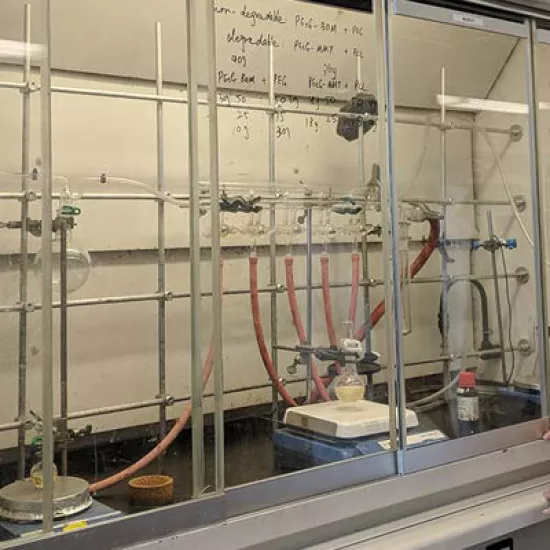
Environmental Science
Environmental Science is an interdisciplinary study of complex environmental problems involving the natural world and human impacts. Students can tailor the scientific focus of the program to their own interests, by choosing courses from Geographical and Earth Science perspectives; Biological/Ecological perspectives; and Physical/Chemical perspectives. Courses on Social and Policy perspectives are also part of the program; no matter which pathway is followed, some courses on Social and Policy Perspectives are required. The premise is that those who will develop our scientific knowledge and technological capacities must also have a basic understanding of environmental management, policy, and the human-environment relationship. The Environment programs at UTM are all ECO Canada accredited. Graduates of major and specialist programs get a head start with an integrated environmental Professional-in-Training designation (Ept).
Honours Bachelor of Science
Program Plans
Plan your degree with these academic and co-curricular program overviews.
Tip Sheets
Learn more about further education, applying to jobs & more!
- Ecologist
- Environmental Auditor
- Park Naturalist
- Conservation Officer
- Teacher/Professor
Admission Requirements
Regional Requirements
Admissions RequirementsLife in Environmental Science
Buzz Around Campus
Sample Courses
This course provides an introduction to the principles and concepts of geomorphology, the study of the processes that shape the surface of the earth. The course adopts a process-oriented approach to the study of the variety of landforms found in the natural environment.
This hands-on course introduces students to field methods and integrative problem solving in environmental sciences. Topics will include sampling methods and protocols employed in terrestrial, aquatic and atmospheric assessment and monitoring, etc.
This course will examine the complex nature of minerals and crystals from a geological, physical and chemical perspective and will introduce the petrology of volcanic rocks, intrusive plutonic rocks, metamorphic rocks, and sedimentary rocks.
Other Programs to Consider

Astronomical Sciences
Astronomical Sciences studies the vast universe beyond Earth, discovering objects and phenomena that do not exist on Earth or in the solar system, such as planets orbiting other stars, black holes and forms of mass and energy that cannot be seen even though they form 95% of the universe. To study these objects, astronomical sciences integrates the methods and knowledge of all the other sciences.

Geography (HBSc)
The Geography BSc offers a broad perspective on physical geography. In-depth studies include climatology, hydrology and ecosystems, with possible specialization in biogeochemistry, arctic regions, landscape ecology, natural resources and urban climate. The curriculum stresses the integrative nature of the discipline as well as the development of skills in geographical information analysis.

Biotechnology
Biotechnology in modern society is the "application of scientific and technical advances in life science to develop commercial products”. This program combines biological sciences (genetics, biochemistry, molecular biology, microbiology, cell biology) with other science disciplines (chemistry, engineering, information technology, robotics, etc.).



